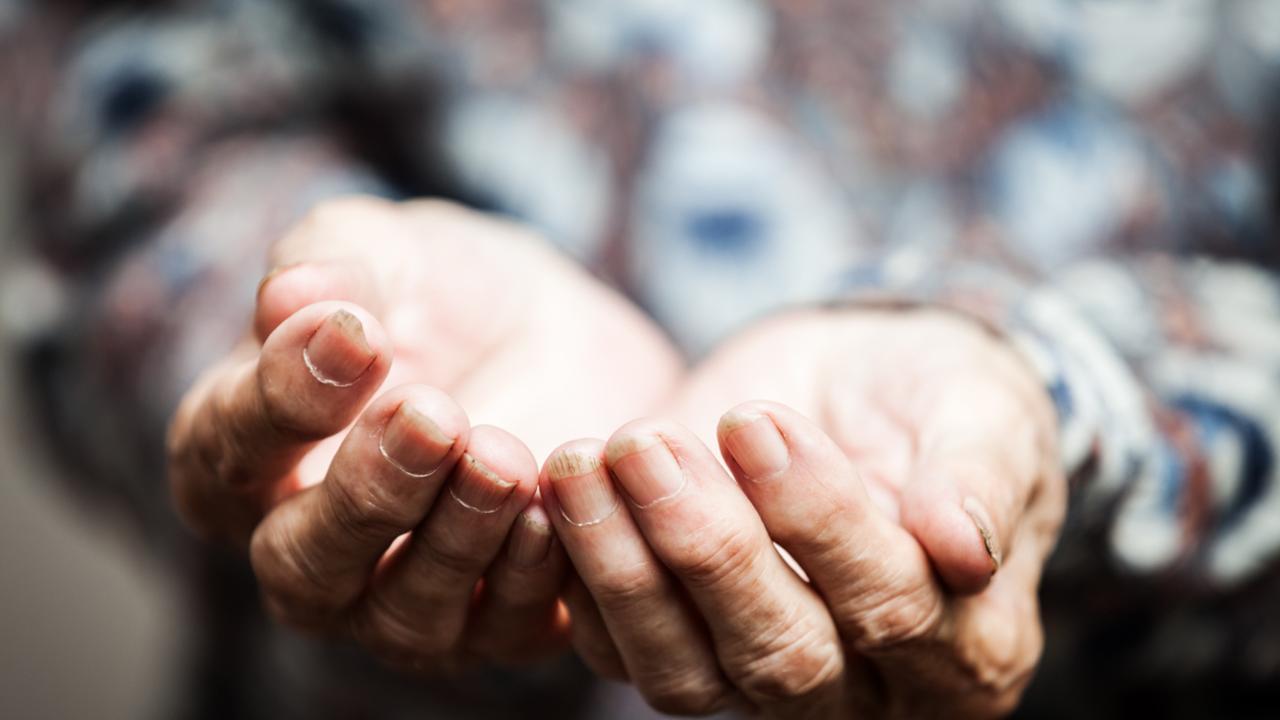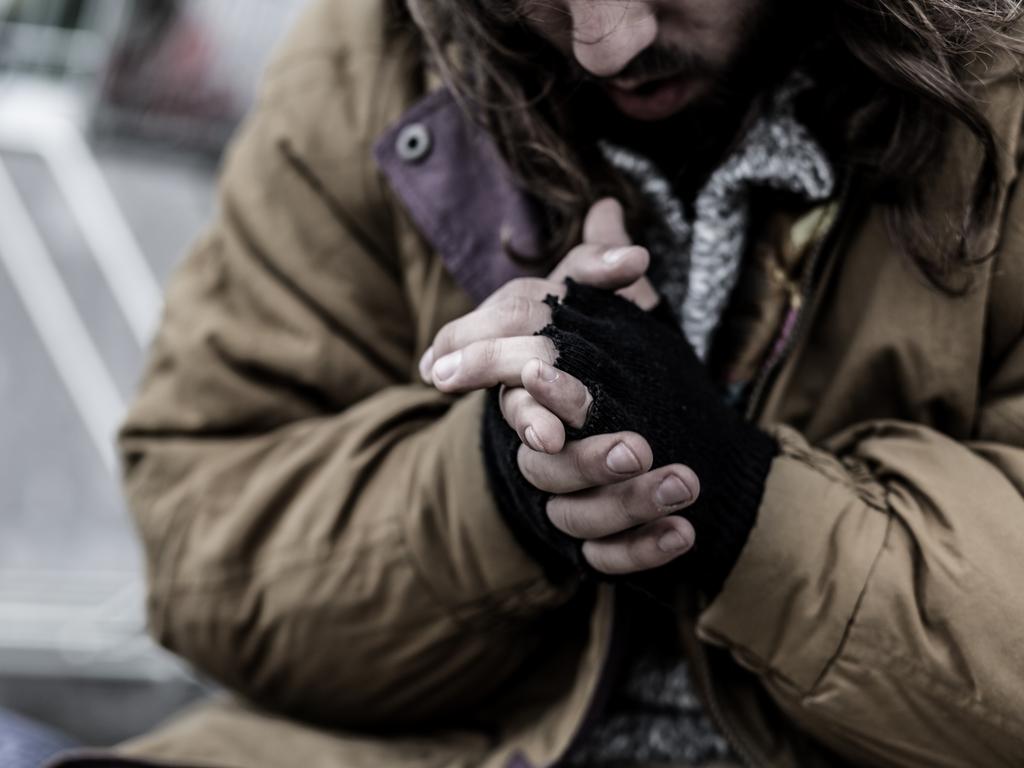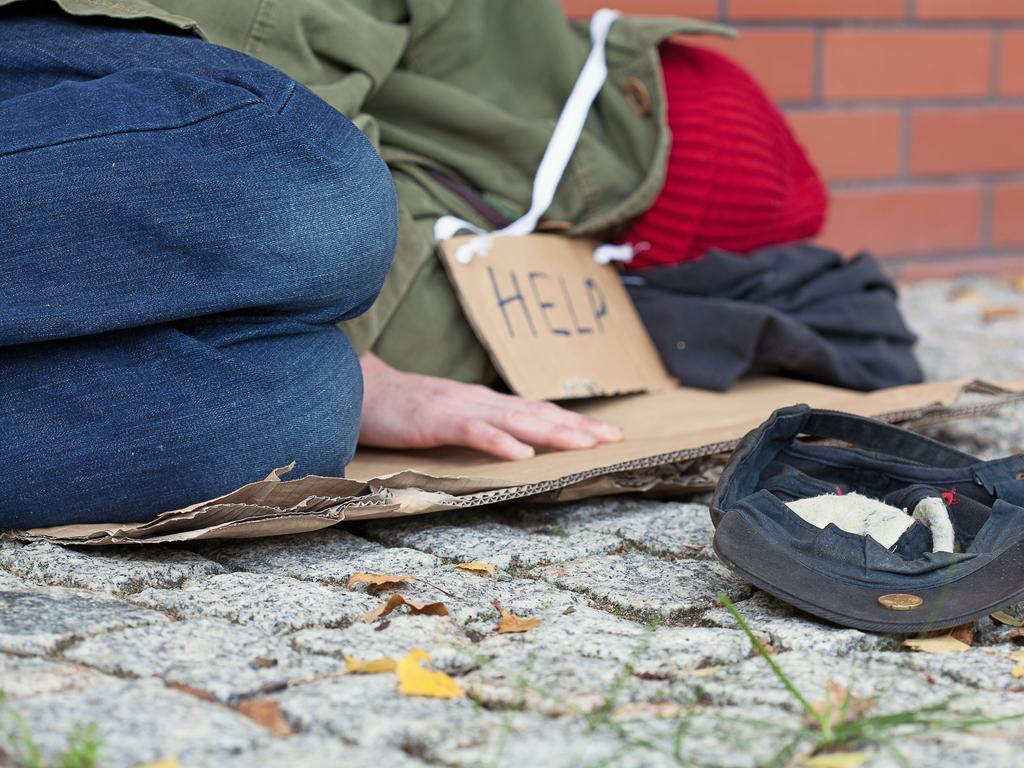Denmark criticised over anti-begging laws, which can send offenders to jail for holding a paper cup
First offenders under one nation’s controversial new law can now face jail time, with politicians being slammed internationally.

Denmark’s harsh policy against beggars is having devastating real-life effects on the nation’s poorest, who believe they are being unfairly targeted.
Under relatively new Danish legislation passed in 2017 that specifically targets “foreign visitors”, those caught begging in certain locations can now be arrested for being “intimidating” and face jail time.
The issue has been put in the spotlight by a 25-year-old Romanian woman, who received a court order and was accused of “aggravating” the public outside a supermarket.
The woman, Loredana, lives in homeless shelter in the nation’s capital of Copenhagen, and is struggling to make ends meet as partially mute, deaf and illiterate young woman facing discrimination.
Like many Romanians, Loredana moved to Denmark hoping to support her poor family back home. But foreigners say they are facing significant barriers in finding employment due to discrimination.


Prior to 2017, beggars would merely be let off with a warning if police went through the effort of arresting them in public. Now, a beggar is unconditionally forced inside a cell for 14 days, even if it is their first offence.
For the impoverished, getting a foot on the ladder to escape the streets is almost impossible.
Some employers and landlords ask for a social security number before they offer jobs or homes. But obtaining that number relies on having an employment contract and an address to begin with.
It’s not hard to see how the cycle continues. And now, the homeless are finding themselves criminalised for simply asking for a euro from a passer-by.
Human rights lawyer Pia Justesen is among those against the Danish approach to handling social issues by criminalising begging.
“Begging has been illegal here for hundreds of years. But in 2017, the parliament decided to get rid of so-called ‘intimidating’ begging’,” Justesen told AlJazeera.
“If you beg in one of four places – on a pedestrian street, in front of or in a supermarket, on public transport or in a train station – it is automatically considered ‘intimidating’. You don’t have to be intimidating in your behaviour: it’s only about the location.”
The UN and other international bodies have also criticised Denmark’s laws on begging, warning of the adverse effects on already marginalised communities and calling for a reverse on legislative changes.
One particular case in 2022 sent rights activists in a frenzy.
Judges at the Danish supreme court ruled that a beggars human rights were not infringed by a 60-day sentence, which he was given for holding a paper cup to people passing him at the entrance to Copenhagen Central Station.

Rights group the European Federation of National Organisations Working with the Homeless (FEANTSA) smashed Denmark over the laws.
“Poverty must be hidden from the average Danish citizen. This is the message of the Danish Supreme Court ruling,” FEANTSA said in a statement.
“We consider this is a missed opportunity to denounce abusive policies and to send an important message to the world – that human rights must be upheld beyond social class or nationality and ethnicity.
“Criminalisation of poverty and homelessness further punishes people and contributes to their stigmatisation and exclusion from society. Homelessness is not a choice and people experiencing poverty should be offered support and not be further penalised.”
Justesen said the case of the man with the paper cup sets a dangerous precedent – that people can now be convicted of a crime for even the most passive of behaviours.
“There are plenty of cases where people have sat on a plastic box with a paper cup in front of them and have been convicted — even if they weren’t reaching out to passers-by or even looking at them,” Justesen says. “With the begging law, you can be passive and still get convicted.”






